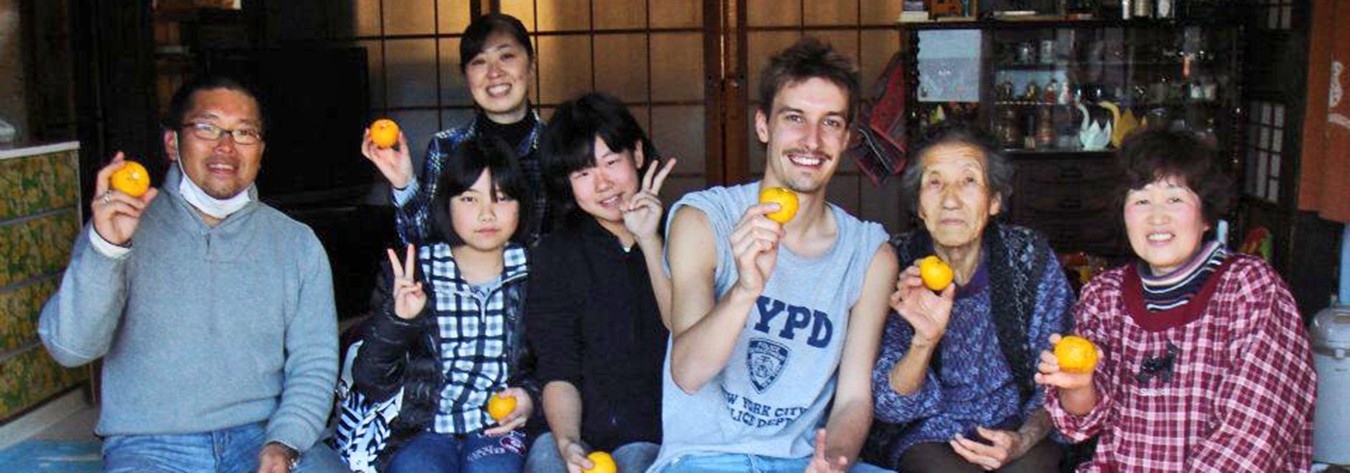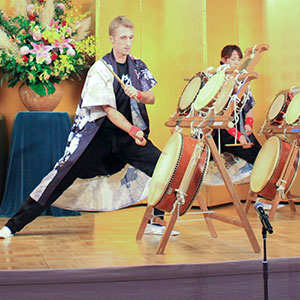Now in its 30th year, the Japan Exchange and Teaching (JET) Programme has welcomed more than 62,000 people from 65 countries to deliver grassroots international exchange between Japan and other nations. This column features former JET Programme participants who keep the idea of fostering mutual understanding firmly at heart.
On applying for the Japan Exchange and Teaching (JET) Programme in 2008, I never realised that my experience on it would kick-start a career in the UK that was to involve business links between the two countries. I was looking for a bit of an adventure when I flew to Tokyo in 2009. That, in a few years, I would be working in a London office promoting trade and investment for Japan was the last thing I envisaged.
I arrived in stifling summer heat and went to work as an assistant language teacher in Sakado City, Saitama Prefecture. Conveniently close to Tokyo, but with a definite countryside feel, I could get the best of both worlds. I worked at the local senior high school, and periodically visited other high schools.
For three years, I helped students with their English, and tried to become as involved as possible in school activities and in promoting international communication. I have always been interested in a career in international relations. By living and working in Sakado, I was able to promote the UK to students, and encourage them with their language skills.
I also visited several schools for deaf, blind and disabled students. Working with those young people remains one of the prized memories of my years in Japan.
I spent time at a local English speech society where, together with mainly retired professionals, we wrote and presented speeches on a wide variety of topics.
For anyone involved in the JET Programme, it represents so much more than an opportunity to explore a country culturally different from one’s own. Whether at school with the students and teachers, at a local festival or through involvement in community activities, language immersion is a positive experience for those on both sides.
When I returned home, in 2012, I moved to London with the aim of further study, but was offered a role in business development at the Japan External Trade Organisation (JETRO) in London. My responsibility is to promote Japan to British and other European firms in the UK. We provide government support to businesses that are seeking to expand and set up in Japan.
I really feel that understanding business cultures from around the world is incredibly useful when working in an international environment. My three years on the JET Programme working in a Japanese environment is hugely beneficial for my job. For clients, too, my experience has been useful; when discussing life in Japan, I draw on it as well as on the skills and knowledge I have picked up from working at JETRO London.
Sometimes I attend events in the UK at which the globalisation of Japan is discussed in the context of trying to increase foreign direct investment into Japan. An increasingly international workforce is such a positive thing and, without a doubt, JET Programme participants across Japan are contributing to communities at the grassroots level.
Many students whom I taught when they were in high school are now studying in Europe and can speak English really well. That is great news, not only for them, but also for Japan. Moreover, for those returning to the UK from a period on the JET Programme, I believe the skills gained—whether Japanese language proficiency, interpersonal skills or presentation abilities—are a huge asset for employers and organisations.







